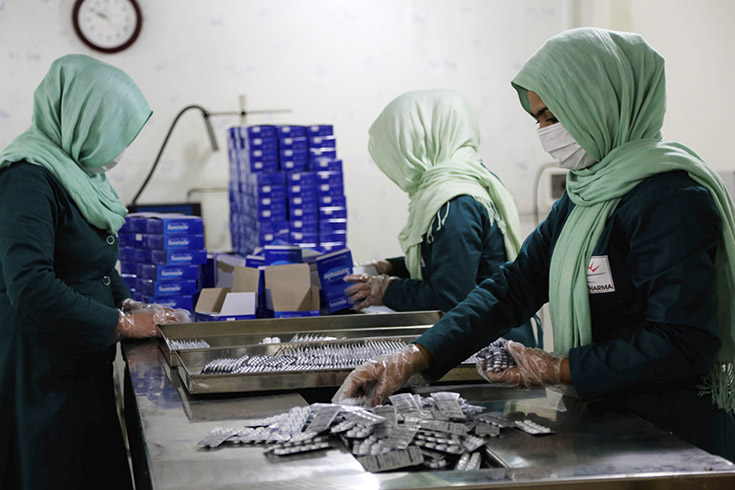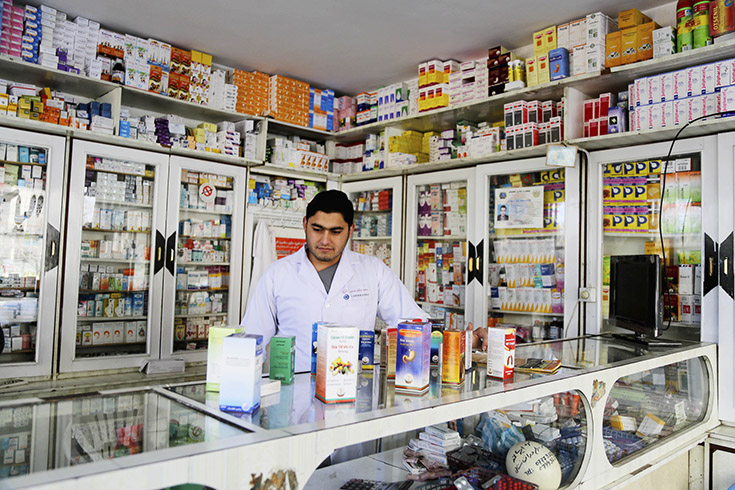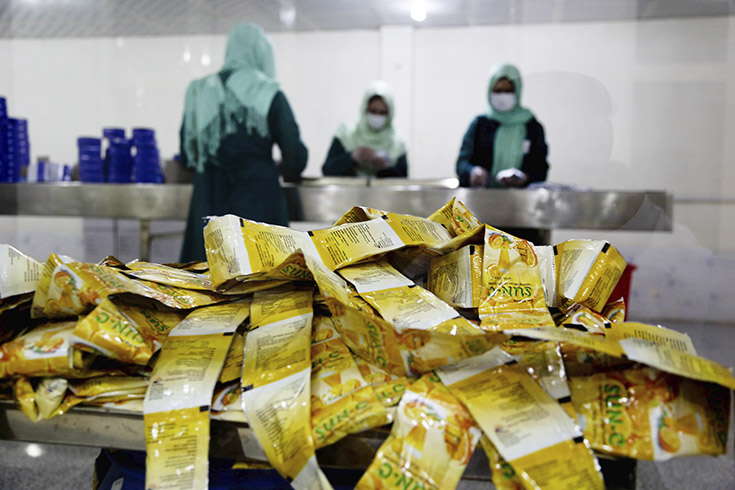Kabul City, Afghanistan–A number of local pharmaceutical companies are at the forefront of increasing the domestic share of the lucrative pharmaceutical market in Afghanistan. In a market dominated by imported pharmaceutical products, emerging local enterprises are increasingly competitive in producing high quality health products accompanied by good customer service at affordable prices.
Local pharmaceutical companies produce a variety of medical products such as tablets, capsules, and powders, which are distributed and sold across the country. Quality assurance is a fundamental part of gaining market share. Abdul Khaliq Fahim, technical director of a pharmaceutical company based in Kabul, says that Afghan-produced medications are tightly monitored. “Afghan Health Ministry officials monitor the materials we import and how we use those materials in production,” he says.
The company Fahim works for was founded in 2012 with an initial investment of $450,000. Recently, it received a grant of $54,000 from the Afghanistan New Market Development Project (ANMDP), operated by the Ministry of Commerce and Industries with funding support from the World Bank.



